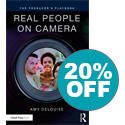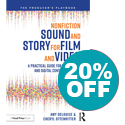Good Leaders Should Read Novels
 I recently trailed one of my children on school visiting day and was struck by the relevance of the English lesson. The students were discussing difficult choices, using as their texts the novel “Tuck Everlasting” and Robert Frost’s poem “The Road Less Traveled.” The lesson reminded me of why I love novels (aside from the fact that I was an English major), and why I think leaders should read them.
I recently trailed one of my children on school visiting day and was struck by the relevance of the English lesson. The students were discussing difficult choices, using as their texts the novel “Tuck Everlasting” and Robert Frost’s poem “The Road Less Traveled.” The lesson reminded me of why I love novels (aside from the fact that I was an English major), and why I think leaders should read them.
In an article earlier this year about CEO character traits, the New York Times’ Peter Brooks postulates that reading novels could offer these leaders “greater psychological insight, a feel for human relationships, a greater sensitivity toward their own emotional chords.” He’s on to something. I would add to his list the following:
- Perspective on Difficult Choices. As in life, the characters in novels rarely get black and white choices. Tom Sawyer has to confront racial injustice as he considers his friendship with Huck. Edith Wharton’s Lily Barth in House of Mirth tries to find a way to avoid the socially and financially correct marriage that society in her time demands. James Joyce’s Leopold Bloom struggles with the existential crises of the individual living in modern collective society in Ulysses. The list goes on. By reading these novels we gain insight into our own dilemmas.
- A View of Character. “The Gravedigger’s Daughter” by Joyce Carol Oates was one of my favorite–yet difficult–reads this year. The way this brilliant novelist draws us into the protagonist’s shocking childhood helps a reader understand what can lie behind broken familial relationships and what it takes to be a survivor.
- A View Into Other Cultures. Another favorite novel of mine is “The Piano Tuner,” a stunning first novel which provides a view into the unequal relationships within the British Colonial empire, and specifically in Myanmar, at the end of the 19th century. While set in a distant time and culture, some of the scenes are achingly heartbreaking, and can give us some context for the continuing struggles of the Burmese people.
- An Ability to Change One’s Mind. I recently read “The French Lieutenant’s Woman” by literary power-house John Fowles, and had the pleasure to discuss it in a book club led by my wonderful former high school English teacher. Over the course of reading the novel, I completely changed my mind about the “woman” of the title, Sarah. Through Sarah, Fowles slowly brought me to a new perspective on all the characters in the book, as well as a view of modern relationships. Being able to change one’s mind is something we are less and less able to do in our society, as we seem to be forced into clearly defined groups whose minds have been made up for us (by religious affiliation, by gender, by political party, neighborhood, school choices for our children, etc.). Being able to think about perspective is the great gift of the novel.
So for all these reasons, I highly recommend that leaders read fiction, and specifically the novel. Try handing out a novel to your board and staff at your next meeting and then schedule a discussion of one or two of the topics above at a subsequent gathering. It might just give you a new way to think about problems, people, and choices.
Do you have a great novel to recommend?





Not exactly novels but…
The Prophet by Kahlil Gibran
The Book of Revelation
A Tale of Two Cities
and a new one
The Given Day by Dennis Lehane
Thanks, Bill, I’m not familiar with that Lehane and will give it a try!
Thanks, Bill, I’m not familiar with that Lehane and will give it a try!
All time favorite novel is by Daphne DeMaurier, The Parasites. A novel about three siblings, children of stage actors, who are so closely entwined that you cannot tell who is telling the story at any given time. DeMaurier is one of the great psychological writers.
Rather than any novel I can think of, I would start with Shakespeare: Richard III, Macbeth, Julius Caesar. All cautionary tales of course.
We read aloud to the kids almost every night and currently we are in the middle of Heart of Darkness by Conrad. I had read it in middle school and again just after college but hadn’t picked it up since. Like all great novels, it offers something new and different at each reading.
The first time, I learned about racism and the horrors of the Belgian occupation in Africa. While historically remote, it speaks directly to our ability to treat other humans in utterly inhuman ways. Think Bosnia, Rwanda, or any of a dozen more current conflicts.
The second time, I was struck by each character’s ability to see only as much as he wants to see. Even Marlowe ignores certain facts in pursuit of his goals. Much of modern American political discourse seems similarly blinkered. Facts are trimmed to fit our beliefs, not the other way around. We believe what is convenient.
Now that I’m older, I am reading the book with a fuller understanding of the constraints on each character limiting his (there really are no female characters through 85% of the book) freedom of movement. The younger me was dismissive of the way the characters, even Marlowe, went along with the society around them. Now I understand better how we rarely, if ever, are free to operate in morally pure terms. We move always in ambiguous contexts, without perfect knowledge, and must make the best compromises we can. A much messier business.
I type too much! Short form: for lessons on racism, self-awareness, and moral struggle, leaders should read Conrad. Heart of Darkness is short for the busy exec; Lord Jim, perhaps, for someone with a little more time who wants to explore the nature of responsibility to the weak in more depth.
I have a few that I like.
Catcher in the Rye – J.D. Salinger
Like the fact that it challenges you to think against the grain
Stranger – Albert Camus
Interesting story about taking responsibility for one’s actions.
My #1 recommendation: To Kill A Mockingbird. If you like books and don’t love this one, it’s probably because you haven’t re-read it since you were forced to read it in 7th grade. Well-written, funny (“The Truth Is Not in the Delafields, All the Bufords Walk Like That”), with serious themes. Read it to your kids, if their ages are appropriate, that way they’ll get to experience it too.
I also endorse Tom Sawyer/Huck Finn.
I don’t find many current books that hold my interest, but two I recommend (not necessarily for “Leaders”) are:
Bordeaux, by Paul Torday, a novel that goes in reverse chronological order through the main character’s coming out into the world and then descent into alcohol; and
The Art of Racing in the Rain, by Garth Stein, which is more of a straightforward drama (wife dies, grandparents fight for custody of child, etc) but is amusingly narrated by the protagonist’s dog.
I agree wholeheartedly with your suggestion!
On our campus, a colleague in our English/Lit department advocates including the question “what are you reading now?” as a routine question when hiring new deans and other leaders. It’s a good way to “get into the head” of a candidate, so now I always use that question.
I can tell you, the candidate who stated, “I only read books on leadership” was NOT doing himself a favor in revealing that bit of information!
Yes. I know it’s very popular to cite the latest Warren Buffet or leadership book–and those can also be idea-generators, but not as challenging (for me anyway) as a novel.
Great idea to make a list of novels, Amy. I would agree with many of the suggestions already made, especially Dickens’ A Tale of Two Cities, which for me is about self-denial for the greater good.
I also love Emily Bronte’s Wuthering Heights (“Why did you betray your heart, Cathy?”). And there are several high-end science fiction novels that are very thought provoking for leaders, including Circuit of Heaven by Dennis Danvers, He, She, It by Marge Piercy and Never Let Me Go by Kazuo Ishiguro.
Great additions, Bonnie, thanks! OK now we have so many good ideas I am going to try to set up a Wiki for this. Details to come…A
I read a number of really great books this summer: The Help, by Kathryn Stockett; The Elegance of the Hedgehog, by Muriel Barbery;Olive Kitteridge, by Elizabeth Strout; The Third Angel, by Alice Hoffman; The Girl with the Dragon Tatoo and The GIrl Who played with Fire, by Stieg Larsson – and reread The Confederacy of Dunces by John Kennedy Toole, one of the most hilarious novels ever written! Ignatius, the main character , makes the wisest decision of all: keeping his mouth shut! East of Eden, by John Steinbeck, is certainly a novel with hard choices in it. It is worth rereading if you have not read it in recent history.